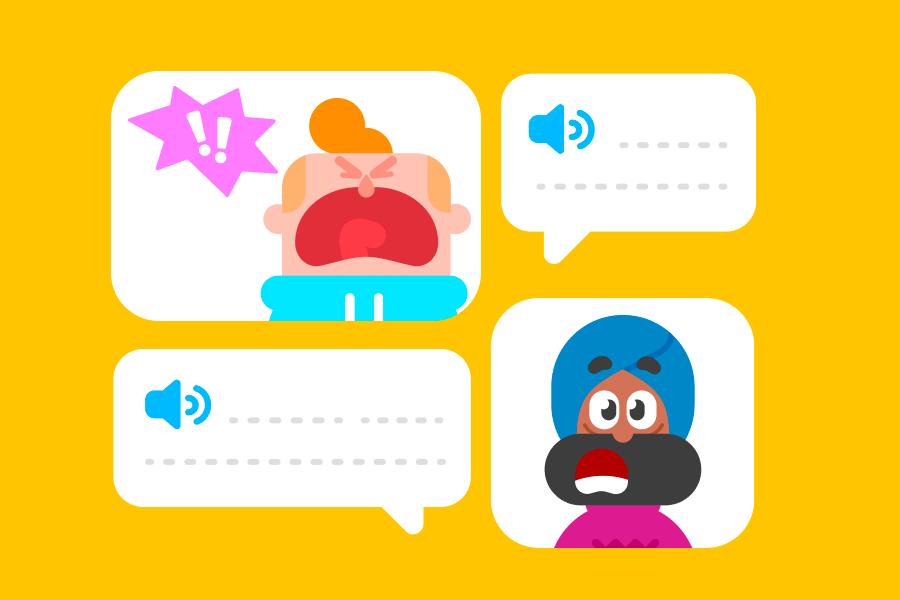It might feel like you have no control over the sound you make when you stub your toe—but in fact, how we express pain is influenced by our language!
Here are the similarities and differences in pain words around the world.
The sounds of “ouch”
When you feel pain, there is often an element of surprise, leaving many pain-feelers with their mouths open. That’s why so many languages utilize the open vowels “a” and “o”: They’re made with the mouth wide open and the tongue low in the mouth.
There are also many instances of languages using fricative sounds like “f” or “ch” at the end of this type of exclamation. Fricatives are made by partially blocking the flow of air out of the mouth, like you might do when you’re trying to stop from making too much noise. Fricative sounds are also satisfying to say when we are upset about something, like hurting ourselves!
In fact, words to express pain aren’t the only expressions that reveal interesting sound patterns around the world—animal sounds are another example of how languages shape natural sounds in unique ways.
“Ouch” patterns around the world
While there are some pretty universal trends for which sounds arise in moments of pain, there are also some differences based on language families. For example, English ouch and German autsch are very similar, since these are both in the family of Germanic languages.
Spanish, French, and Portuguese are Romance languages that evolved from Latin, and they all use versions of “ai.” (This is a way of representing how it’s pronounced, using the International Phonetic Alphabet, but languages have their own conventions of how to write these exclamations of pain.) Russian and Ukrainian, two Slavic languages, also use a form of “ai.”
| Language | Pronunciation |
|---|---|
| Arabic | “ai” or “akh” |
| Bengali | “ish” or “uff” |
| Chinese (Cantonese) | “aiya” |
| Chinese (Mandarin) | “tong” or “teng” |
| Finnish | “auts” or “auh” |
| French | “aïe” or “ayoye” (in Quebec) |
| German | “aua” or “autsch” |
| Greek | “ach” or “och” or “ouch” |
| Hindi | “aha” |
| Hungarian | “au” or “jaj” |
| Indonesian | “aduh” |
| Japanese | “ita” |
| Polish | “au” or “autsch” or “aua” |
| Portuguese | “ai” |
| Russian | “ai” |
| Spanish | “ai” |
| Tagalog | “aray” |
| Thai | “oi” |
| Turkish | “ai” or “ah” or “off” |
| Ukrainian | “ai” |
There are, of course, lots of variations of these expressions across the speakers and dialects that make up each language. Many of these words for “ouch” can also be repeated when used in the moment of pain—think of the person hopping up and down in pain and exclaiming “Ow, ow, ow!”
A world of pain, linguistically
The next time you need to make your pain known, try saying it in the language you’re learning!
